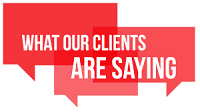
| Login |  |
Register |  |
All Opportunities |  |
Courses |  |
Post Project |  |
Post Course |
 |
|||||||||||
|
|||||||||||
|
|
||||||||||
| CERTIFICATIONPOINT - FLORIDA COLLEGE 2 BUSINESS COLLABORATE. (REGION 4) "More than ever, higher education needs to prepare students not just for their first jobs, but for lives and careers that are difficult to predict. " - Randy Bass (Georgetown Univ.) (See More Quotes...) |
|
|
||||||||
|
|
 
|
|||||||||



|
|
|||||
EXPERIENCE BUILDER: Work w/ Microsoft SharePoint - Considering STudents From Delaware State University and University of Delaware View Details ANSWERS/PROPOSALS RECEIVED: 2 CATEGORIES: LOCATION/AREA: Florida, INFORMATION TECHNOLOGY: Microsoft SharePoint, LOCATION/AREA: Delaware, LOCATION/AREA: Delaware: Delaware State University, LOCATION/AREA: Delaware: University of Delaware OPEN DATE: 6/20/2024 CLOSE DATE: 12/29/2025 |
|||||
NOTE: RESERVED FOR INTERNAL PROMOTIONAL COMPETITIONS AND/OR SERVICE BUYER PAYING AN ADDITIONAL FEE FOR GREATER PRIORITY & EXPOSURE. |
|||||
|
|
|||||
EXPERIENCE BUILDER: University of Florida Student Freelance Needed - Logo Design View Details ANSWERS/PROPOSALS RECEIVED: 1 CATEGORIES: LOCATION/AREA: Georgia, INFORMATION TECHNOLOGY: Logo Design, LOCATION/AREA: North Carolina, LOCATION/AREA: Delaware, LOCATION/AREA: Florida, LOCATION/AREA: North Carolina: N. Carolina Central University OPEN DATE: 6/7/2024 CLOSE DATE: 3/29/2026 |
|||||
NOTE: RESERVED FOR INTERNAL PROMOTIONAL COMPETITIONS AND/OR SERVICE BUYER PAYING AN ADDITIONAL FEE FOR GREATER PRIORITY & EXPOSURE. |
|||||
|
|
|||||
EXPERIENCE BUILDER: News Editing Student Needed View Details ANSWERS/PROPOSALS RECEIVED: 1 CATEGORIES: LOCATION/AREA: Florida, LOCATION/AREA: West Virginia, LOCATION/AREA: Virginia, LOCATION/AREA: Connecticut, LOCATION/AREA: Maryland, LOCATION/AREA: New Jersey, LOCATION/AREA: South Carolina OPEN DATE: 6/19/2024 CLOSE DATE: 10/29/2025 |
|||||
NOTE: RESERVED FOR INTERNAL PROMOTIONAL COMPETITIONS AND/OR SERVICE BUYER PAYING AN ADDITIONAL FEE FOR GREATER PRIORITY & EXPOSURE. |
|||||
 | |||||

|
|
|||||
|
|
|||||
| EXPERIENCE BUILDER: Database form data submission assistance View Details SERVICE BUYER-ID: 10586 ANSWERS/PROPOSALS RECEIVED: 0 CATEGORIES: LOCATION/AREA: Virginia, EDUCATION: Research, LOCATION/AREA: Georgia, LOCATION/AREA: Maryland, LOCATION/AREA: New Jersey, LOCATION/AREA: North Carolina, LOCATION/AREA: South Carolina, LOCATION/AREA: Florida, LOCATION/AREA: West Virginia, LOCATION/AREA: Delaware OPEN DATE: 9/22/2024 CLOSE DATE: 10/23/2025 |
|||||
|
|
|||||
|
|
|||||
| EXPERIENCE BUILDER: Web Hosting Professional - Web Hosting Needed View Details SERVICE BUYER-ID: 10652 ANSWERS/PROPOSALS RECEIVED: 0 CATEGORIES: LOCATION/AREA: Virginia, EDUCATION: Research, LOCATION/AREA: Georgia, LOCATION/AREA: Maryland, LOCATION/AREA: New Jersey, LOCATION/AREA: North Carolina, LOCATION/AREA: South Carolina, LOCATION/AREA: Florida, LOCATION/AREA: West Virginia, LOCATION/AREA: Delaware OPEN DATE: 9/22/2024 CLOSE DATE: 10/23/2025 |
|||||
|
|
|||||
|
|
|||||
| EXPERIENCE BUILDER: ASP.NET EXPERT TO HELP MODIFY AUCTION SITE View Details SERVICE BUYER-ID: 1788 ANSWERS/PROPOSALS RECEIVED: 0 CATEGORIES: LOCATION/AREA: Virginia, EDUCATION: Research, LOCATION/AREA: Georgia, LOCATION/AREA: Maryland, LOCATION/AREA: New Jersey, LOCATION/AREA: North Carolina, LOCATION/AREA: South Carolina, LOCATION/AREA: Florida, LOCATION/AREA: West Virginia, LOCATION/AREA: Delaware OPEN DATE: 9/22/2024 CLOSE DATE: 10/23/2025 |
|||||
|
|
|||||
|
|
|||||
| EXPERIENCE BUILDER: Mid Level ASP.NET MVC Developer View Details SERVICE BUYER-ID: 1795 ANSWERS/PROPOSALS RECEIVED: 0 CATEGORIES: LOCATION/AREA: Virginia, EDUCATION: Research, LOCATION/AREA: Georgia, LOCATION/AREA: Maryland, LOCATION/AREA: New Jersey, LOCATION/AREA: North Carolina, LOCATION/AREA: South Carolina, LOCATION/AREA: Florida, LOCATION/AREA: West Virginia, LOCATION/AREA: Delaware OPEN DATE: 9/27/2024 CLOSE DATE: 12/22/2025 |
|||||
|
|
|||||
|
|
|||||
| EXPERIENCE BUILDER: I would like to hire a WordPress Developer and Content Writer View Details SERVICE BUYER-ID: 10136 ANSWERS/PROPOSALS RECEIVED: 0 CATEGORIES: LOCATION/AREA: Virginia, EDUCATION: Research, LOCATION/AREA: Georgia, LOCATION/AREA: Maryland, LOCATION/AREA: New Jersey, LOCATION/AREA: North Carolina, LOCATION/AREA: South Carolina, LOCATION/AREA: Florida, LOCATION/AREA: West Virginia, LOCATION/AREA: Delaware OPEN DATE: 6/3/2024 CLOSE DATE: 7/13/2025 |
|||||
|
|
|||||
|
|
|||||
| EXPERIENCE BUILDER: Virtual Capstone (3rd & 4th Quarter) View Details SERVICE BUYER-ID: 10884 ANSWERS/PROPOSALS RECEIVED: 0 CATEGORIES: LOCATION/AREA: Virginia, EDUCATION: Research, LOCATION/AREA: Georgia, LOCATION/AREA: Maryland, LOCATION/AREA: New Jersey, LOCATION/AREA: North Carolina, LOCATION/AREA: South Carolina, LOCATION/AREA: Florida, LOCATION/AREA: West Virginia, LOCATION/AREA: Delaware OPEN DATE: 6/7/2024 CLOSE DATE: 4/16/2025 |
|||||
|
|
|||||
|
|
|||||
| EXPERIENCE BUILDER: Work w/ Microsoft SharePoint - Considering STudents From Delaware State University and University of Delaware View Details SERVICE BUYER-ID: 1840 ANSWERS/PROPOSALS RECEIVED: 2 CATEGORIES: LOCATION/AREA: Florida, INFORMATION TECHNOLOGY: Microsoft SharePoint, LOCATION/AREA: Delaware, LOCATION/AREA: Delaware: Delaware State University, LOCATION/AREA: Delaware: University of Delaware OPEN DATE: 6/20/2024 CLOSE DATE: 12/29/2025 |
|||||
 | |||||

COLLABORATIVE TITLE: (Central Connecticut State University) Collaborative-Ready to Assist w/eCommerce? View Details STUDENT-ID: 23986 POTENTIAL COLLABORATORS: 4 CATEGORIES: INFORMATION TECHNOLOGY: Research, INFORMATION TECHNOLOGY: Website Shopping Carts, LOCATION/AREA: Connecticut, LOCATION/AREA: Delaware, LOCATION/AREA: Florida, LOCATION/AREA: Georgia, LOCATION/AREA: Maryland, LOCATION/AREA: New Jersey, LOCATION/AREA: North Carolina, LOCATION/AREA: South Carolina, LOCATION/AREA: Virginia, LOCATION/AREA: West Virginia OPEN DATE: 4/7/2023 CLOSE DATE: N/A |
|||||
COLLABORATIVE TITLE: (South Carolina State University) Collaborative to Assist on a Web Application Project View Details STUDENT-ID: 18861 POTENTIAL COLLABORATORS: 2 CATEGORIES: LOCATION/AREA: Florida, LOCATION/AREA: Georgia, LOCATION/AREA: Maryland, LOCATION/AREA: New Jersey, LOCATION/AREA: North Carolina, LOCATION/AREA: South Carolina, LOCATION/AREA: Virginia OPEN DATE: 4/4/2023 CLOSE DATE: N/A |
|||||
 | |||||

FREQUENTLY ASKED QUESTIONS A: 1. Earn A Degree A: The qualifications to get a web developer job with no experience typically include a degree in the field of web development or computer science. However, many professionals gain their experience through a certificate training program or even teaching themselves the methods. A: Build a Portfolio Site Full of Relevant Work A: Coding languages including HTML and CSS. Frontend web programing languages and skills such as JavaScript, Ajax and web animation techniques. Backend web programing languages such as C# or Java, PHP and Ruby. Design software like Photoshop and Illustrator and Sketch. A: Web development bootcamps typically take 3-4 months to complete and teach all the skills you need to qualify for a web developer job. Learning web development from online courses could take anywhere from a single month to several years, depending on how much time you devote to your courses. A: Many times it's simply a case of supply and demand. There are so many inexperienced web developers and the supply exceeds the current demand. That's why a big number of web developers looking for remote jobs are left out of work. A: Goal identification. The initial stage is all about understanding how you can help your client A: planning, analysis, design, development, testing, implementation, and maintenance. A: Constantly learning and improving A: To become a Web Developer, you should have an understanding of HTML, CSS, and JavaScript. It's also recommended to learn about CSS and CSS frameworks. Developing these fundamental web development skills will give you the foundation and logic for communicating with programming languages. A: There's no magic formula that will make you a successful web developer—as we've seen, anyone can learn to code! However, if you're a keen problem-solver with a knack for building things and getting them working, you'll probably find yourself quite at home in the web development industry. A: It's exciting to be part of something so dynamic, and it means that it's completely normal to be learning something new if you want to become a web developer at 30, become a web developer at 40 or even become a web developer at 50! We all are still learning! A: The Bureau of Labor Statistics projects 30.3% employment growth for web developers between 2021 and 2031. In that period, an estimated 28,900 jobs should open up. Web developers create and maintain websites and web applications, and they use web-facing technology to build software. A: Clients who want a website just like their competitors. Clients wanting a three-month project the 'next day'. Being asked to work for exposure (in other words, for free). Clients ringing your mobile out of hours for no other reason than to discuss their personal, life issues. A: If you do not need to work a full-time job while studying, you could set a three-month timeline for your career change into web development. You can complete a full-time bootcamp program in as little as three months, with all of the skills and knowledge you need to land your first job as a coder. A: Understand the key concepts of visual design A: A good website should be easy to navigate A: The fundamental principles of design which are: balance, proximity, alignment, repetition, contrast and space. A: Overall, making a website with a professional can take anywhere from two to five months. Knowing how long it takes to design a website with a designer/developer, agency or team can help you decide if you'll complete the process on your own or hire a professional.  Collaborate With Friends at Other Schools Region 1: Washington | California | Nevada | Idaho | Arizona | Utah | New Mexico | Colorado | Wyoming | Montana | Oregon Region 2: North Dakota | South Dakota | Nebraska | Kansas | Oklahoma | Texas | Louisiana | Mississippi | Arkansas | Missouri Region 3: Iowa | Wisconsin | Minnesota | Illinois | Tennessee | Alabama | Kentucky | Ohio | Indiana | Pennsylvania Region 4: Georgia | Florida | South Carolina | North Carolina | Virginia | West Virginia | Maryland | Delaware | New Jersey | Connecticut Region 5: Maine | Vermont | New York | New Hampshire | Massachusetts | Rhode Island | Hawaii | Alaska | Michigan International: International |
||||||||||||||||||||||||||||||||||||||||||||||||||||||||||||||||||||||||||||||||||||||||||||||||||||||||||||||||||||



 We're able to build student project teams who are diligently closing course knowledge gaps and building experience on real-world projects in a mentored environment. -Erik (Jumpline Hosting)
 As a college Junior, CertificationPoint has been a life saver. Name another platform on the web where students can gain real experience in chunks while networking with potential employers. -Carrie (San Diego State Univ 2019) |
| Have you picked up a copy of "Unleashing Your Harnessed Potential"? Get It Today! Get the Kindle Version |
| Contact Your Local or School Library For Username/Login Information To Check-Out This Excellent Resource |
| PRIVACY POLICY - TERMS - REPORT VIOLATIONS - CONTACT - FAQ - CERTIFICATIONPOINT HOME - RESOURCE DOWNLOADS |